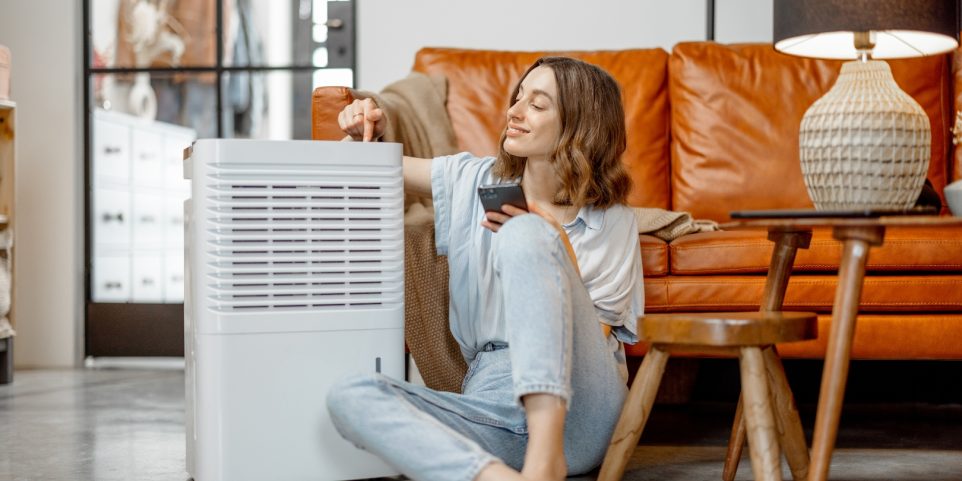Are Air Purifiers Worth It? Everything You Need To Know About Their Effectiveness

Given that we spend a significant amount of time indoors, the air quality we breathe is crucial. From allergens and pet dander to smoke and chemical vapors, the air inside our homes can harbor more pollutants than the air outside. This brings us to the pivotal question: Are air purifiers worth it? Let’s dive into the depths of air purification technology to understand its effectiveness and determine whether these devices are a wise investment for your health and comfort.
Understanding Air Purifiers: How Do They Work?
Before assessing their worth, it’s essential to understand what air purifiers do and how they function. Air purifiers are devices designed to cleanse the air by removing contaminants. They work through various mechanisms, depending on the type of purifier:
HEPA Filters
High-Efficiency Particulate Air (HEPA) filters are the gold standard in air purification technology. They trap 99.97% of particles that are 0.3 microns in diameter (the size of most airborne allergens, mold spores, and dust mite debris). Air passes through a fine mesh that captures harmful particles, providing relief from allergies and respiratory issues.
Activated Carbon
While HEPA filters handle particulate matter, activated carbon filters excel at removing gases and odors. These filters use a bed of activated carbon to absorb volatile organic compounds (VOCs), odors, and smoke.
Ionic Filters
Ionic air purifiers use charged ions to clean the air. These ions attach to airborne pollutants, making them heavier and causing them to settle out of the air. Some ionic purifiers include electrostatic precipitators that collect particles on charged plates.
UV Light Purifiers
These purifiers use ultraviolet light to kill bacteria and viruses. However, they are generally used in conjunction with other filtration systems since UV light alone does not remove particulate pollutants.
The Effectiveness of Air Purifiers
The effectiveness of an air purifier largely depends on its type and the specific needs of your home. Here are several factors where air purifiers prove their worth:
- Allergy Relief: For allergy sufferers, air purifiers can be a game-changer. By filtering out common allergens like pollen, dust, and pet dander, these devices can significantly reduce symptoms of allergic reactions and asthma.
- Smoke Removal: Whether it’s from cigarettes or wildfires, smoke can be a major irritant. Air purifiers with HEPA and activated carbon filters are particularly effective at capturing smoke particles and neutralizing odors.
- Elimination of Harmful Chemicals: In homes close to highways or industrial areas, air purifiers help reduce the levels of harmful chemicals in the indoor air, decreasing potential health risks.
- Combatting Germs: Some air purifiers with UV filters can help reduce the spread of infectious diseases by killing bacteria and viruses.
Considerations and Limitations
While air purifiers can significantly improve indoor air quality, they are not a cure-all and come with certain limitations:
- Area Coverage: The effectiveness of an air purifier is also determined by its coverage area. A small purifier may not be adequate for a large room. It’s important to choose a model that matches the square footage of your space.
- Maintenance: Filters need to be replaced regularly to maintain effectiveness. Failure to do so can lead to a decrease in air purification performance and potentially worsen the air quality.
- Underlying Issues: Air purifiers can mitigate the symptoms of poor air quality but not the underlying problems. Issues like mold growth or excessive dust accumulation require direct intervention.
Are Air Purifiers Worth the Investment?
For many, the benefits of air purifiers justify the cost, especially for those suffering from allergies, asthma, or respiratory conditions exacerbated by polluted indoor air. They are also valuable in regions prone to wildfires or high pollution levels. However, it’s crucial to choose the right purifier type for your specific needs and maintain the device according to manufacturer instructions.
In conclusion, air purifiers are indeed worth considering if you’re looking to improve the air quality in your home. They provide a layer of defense against a range of pollutants that can impact your health and comfort. By understanding the types of air purifiers and aligning one with your personal health needs and the specific conditions of your living space, you can make an informed decision that enhances your quality of life through cleaner, healthier air. Remember, while air purifiers can significantly aid in improving air quality, they work best in conjunction with good cleaning practices and proper ventilation.
Your Trust, Our Core Commitment
At Rising Tech, earning and maintaining your trust is the cornerstone of our mission. We're dedicated to transparency, impartiality, and the relentless pursuit of truth in every article, review, and recommendation we publish. Our commitment to these principles ensures that you, our valued reader, are always equipped with reliable and unbiased information. Let us be your trusted guide in the ever-evolving world of technology.